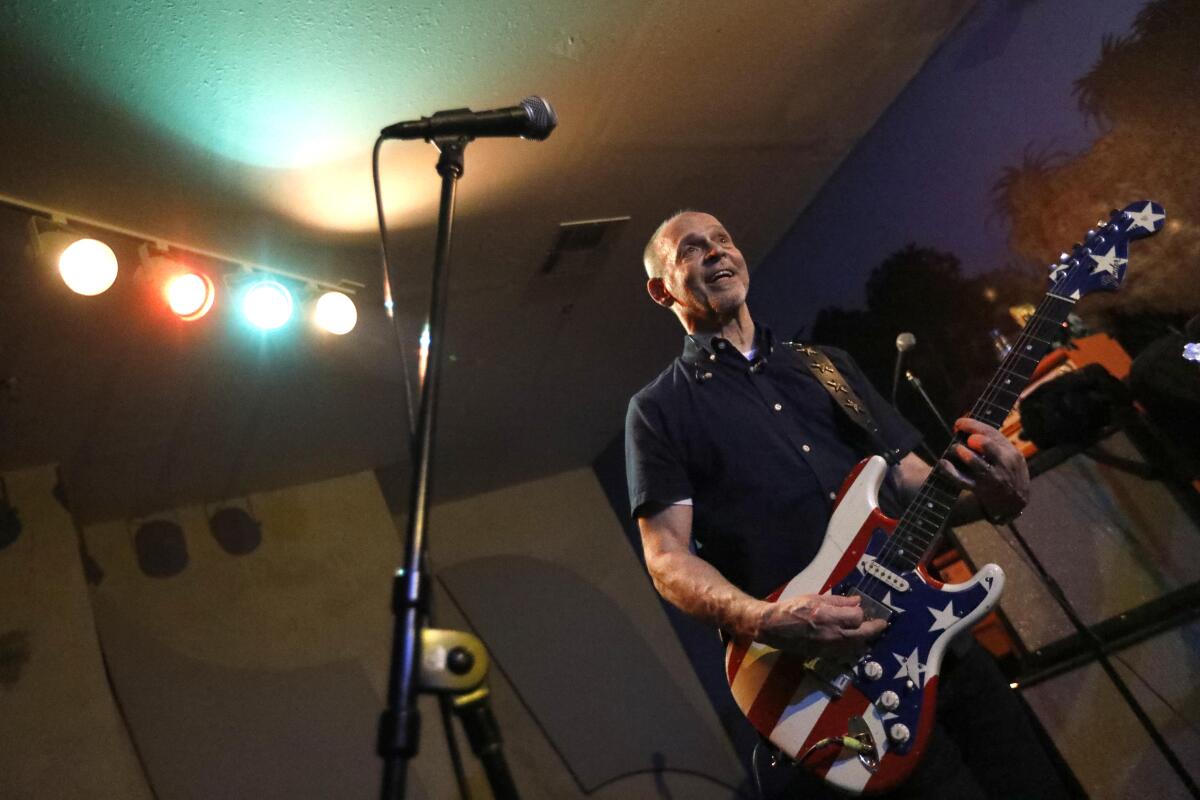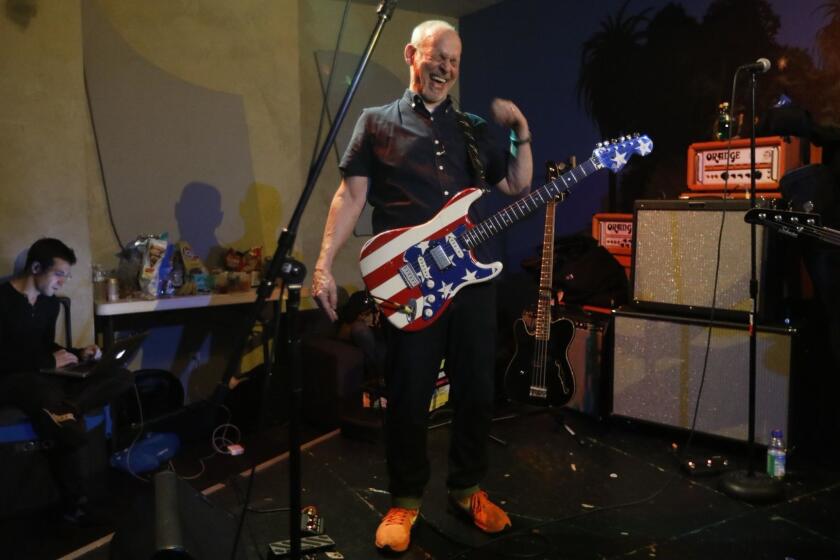Wayne Kramer, influential guitarist of MC5, dead at 75

Wayne Kramer, the influential guitarist of Michigan’s hard-rock band MC5, has died. He was 75.
Kramer died Friday, according to a joint announcement on his and MC5’s official Instagram pages. No cause of death was given.
“PEACE BE WITH YOU” 🕊️,” the statement said, featuring a black-and-white portrait of the musician.
In a small rehearsal space near downtown Los Angeles, five hard-rocking men are getting weird.
Kramer was a musician, activist, onetime federal drug prisoner and a family man during his decades-spanning career. He led the notorious proto-punk band, which disbanded in 1972 after a short run. MC5, which stands for Motor City 5, released their debut album, “Kick Out the Jams,” in 1969; it was recorded over two nights in October 1968 at the Grande Ballroom in Detroit, the band’s hometown.
The MC5 were a pivotal link between blues-based rock and roll, the intuitive inventions of free jazz and the ferocity of punk to come after them. Rolling Stone deemed “Kick Out the Jams” one of the 500 greatest albums of all time, an early document of pummeling riffs, radical politics and self-destructive impulses that would influence generations of rockers, punks and metalheads.
“We were 19-year-old punks on a meth power trip,” Kramer told The Times in 2018. “Jesus, I’ve been playing the guitar for 60 years, and I’ve been playing MC5 for 50 years. I better play it better now than I played it then.”
Kramer’s band performed for the Yippie protest movement at the famously chaotic 1968 Democratic National Convention, and were something of a house band for the radical White Panther Party, a leftist group formed to support the Black Panthers. His guitar painted with a U.S. flag, an image of both seething protest and optimism, became a hallmark.
The band went on to release two studio albums, 1970’s “Back in the USA” and 1971’s “High Time,” before their original break-up. Kramer’s struggles with substance abuse contributed to the band’s rapid downfall. “There is a high attrition rate, especially in the drug and alcohol crowd. Even though a lot of my behavior was self-destructive, I never intended to destroy myself,” Kramer explained. “No matter how bad my hangover was, I enjoyed waking up in the morning.”
His 1974 arrest and 2½-year prison term on drug charges were brutal experiences, yet he said they helped him recover from addiction and find purpose. “To be pulled out of that world and eating three meals a day, working out and getting good rest, that went some distance to saving my liver and other internal organs,” he said. He went on to write a candid memoir, “The Hard Stuff: Dope, Crime, the MC5, and My Life of Impossibilities,” that documented his band’s brief, incendiary life and his work in prison reform afterward. With fellow radical musicians Tom Morello and rapper Chuck D, Kramer founded an activist organization, Jail Guitar Doors, to bring musical instruments into prison.
“You give me $500 and I can take a half-dozen guitars into a prison. That’s real,” Kramer told The Times. “Those guitars are in somebody’s hands. They feel better that day about themselves and the world they live in because they played guitar. It’s a simple principle.”
Kramer worked extensively in composing for film and television. Kramer released a straightforward jazz album, “Lexington,” in 2014, which went No. 6 on Billboard’s jazz chart. The MC5 celebrated the album’s 50th anniversary with a 2018 tour, which featured awed members of Soundgarden and Fugazi in the new incarnation. In 2022, he again reunited MC5 with a new lineup and said he was working on a new album, expected to be released this spring, according to the Guardian.
With wife Margaret Saadi Kramer, he adopted son Francis in 2013. According to the Detroit Free Press, Kramer was diagnosed with pancreatic cancer in January.
More to Read
The biggest entertainment stories
Get our big stories about Hollywood, film, television, music, arts, culture and more right in your inbox as soon as they publish.
You may occasionally receive promotional content from the Los Angeles Times.













